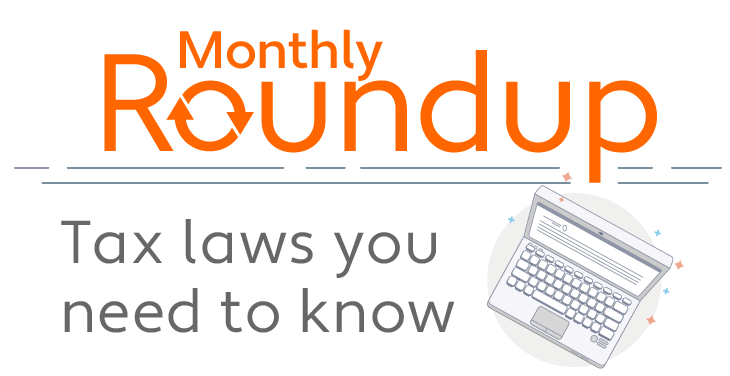E-Commerce in New York State: Sales Tax Tips
From: Jaime Linder, Esq. of Tenenbaum Law, P.C.
It is imperative for e-commerce sellers of taxable property in New York State to know some basic tips about New York sales tax.
Do you have to collect New York State sales tax?
E-commerce sellers are generally required to collect sales tax on taxable sales in states where they have physical presence significant enough to have established “nexus”. For example, Amazon.com has offices in New York State thereby establishing nexus in New York State and creating a sales tax obligation for Amazon and many sellers who utilize Amazon’s Seller Central and Fulfillment by Amazon (FBA) platforms.
If there is sufficient nexus, it must then be determined whether the seller qualifies as a sales tax “vendor,” which is a seller required to collect and pay New York sales tax. It is important to be aware that the definition of “vendor” can include out-of-state sellers (remote affiliates) of taxable items that are affiliated with businesses in New York.
For more detailed guidance on nexus and the definition of vendor under New York State law, consult New York State Department of Taxation and Finance, Publication 750: A Guide to Sales Tax in New York State.
How to register for a sales tax permit in New York State
Before legally making any taxable sales in New York, a vendor must apply for and receive a Certificate of Authority from the New York State Tax Department.
Vendors can apply online by visiting the NYS License Center. Generally, the vendor must register with the Tax Department in New York at least twenty days before conducting business in the State.
How to collect sales Tax in New York State
New York is a destination-based state so point of delivery generally determines the sales tax rate to be applied to a transaction. In computing the sales tax due, the rate to be charged is the total of the New York State tax rate in effect in the jurisdiction where the delivery occurs, plus the local rate in effect in that jurisdiction, plus the school/transportation/district rate if applicable. There is no requirement to collect sales tax on certain exempt purchases or from a purchaser who provides a properly completed exemption certificate within 90 days of the sale.
How to file sales tax returns in New York
When a vendor registers with New York State, the vendor will be classified as a quarterly filer unless certain limited conditions for monthly or annual filing are met. Sales tax returns and payment are due on or before the 20th of the month following the reporting period.
It is important to note that vendors in New York State must keep detailed records of all sales for a minimum of three years from the due date of the return or the date the return is filed, whichever is later. The State may impose significant penalties for insufficient records.
New York State requires vendors to complete all sales tax filing and payment remittance online at the New York Department of Taxation and Finance website.
Vendors beware…
New York State is cracking down on sales tax evasion within its borders. Penalties and interest as high as 14.5 percent may be imposed for late payment of sales tax. The vendor could have its Certificate of Authority revoked or face criminal prosecution.
If a vendor receives a notice from the New York State Tax Department advising it of outstanding tax liabilities, the State may pursue collection and use any combination of enforcement methods such as warrants, levies, income execution and seizures to collect what is owed.
New York State does offer a silver lining in the form of the Voluntary Disclosure and Compliance Program. The State will not impose penalties or bring criminal charges against eligible taxpayers with a history of noncompliance who come forward and pay their outstanding tax liabilities. As an added incentive, qualified taxpayers are also eligible for a limited look-back period.
Summing it all up: Sellers of taxable property and services in New York State must register for a Certificate of Authority, collect and remit sales tax, and timely file returns to avoid New York State’s exorbitant interest and penalties.
Disclaimer: The information contained in this article is not tax advice.
Tenenbaum Law, P.C. has focused its practice on the resolution of tax controversies for almost twenty years. Our attorneys offer comprehensive services to businesses and individuals with respect to their Federal and New York State tax matters. Contact our team at info@LITaxAttorney.com or www.LITaxAttorney.com.
© 2015 Tenenbaum Law, P.C.

The Avalara Tax Changes midyear update is here
Trusted by professionals, this valuable resource simplifies complex topics with clarity and insight.
Stay up to date
Sign up for our free newsletter and stay up to date with the latest tax news.













